Who will win the battle for the hearts and minds of churchgoing Alabamians?
In the third instalment of her series, Holly Baxter meets a reverend in Birmingham, Alabama, who has rallied against the state’s recent anti-abortion legislation

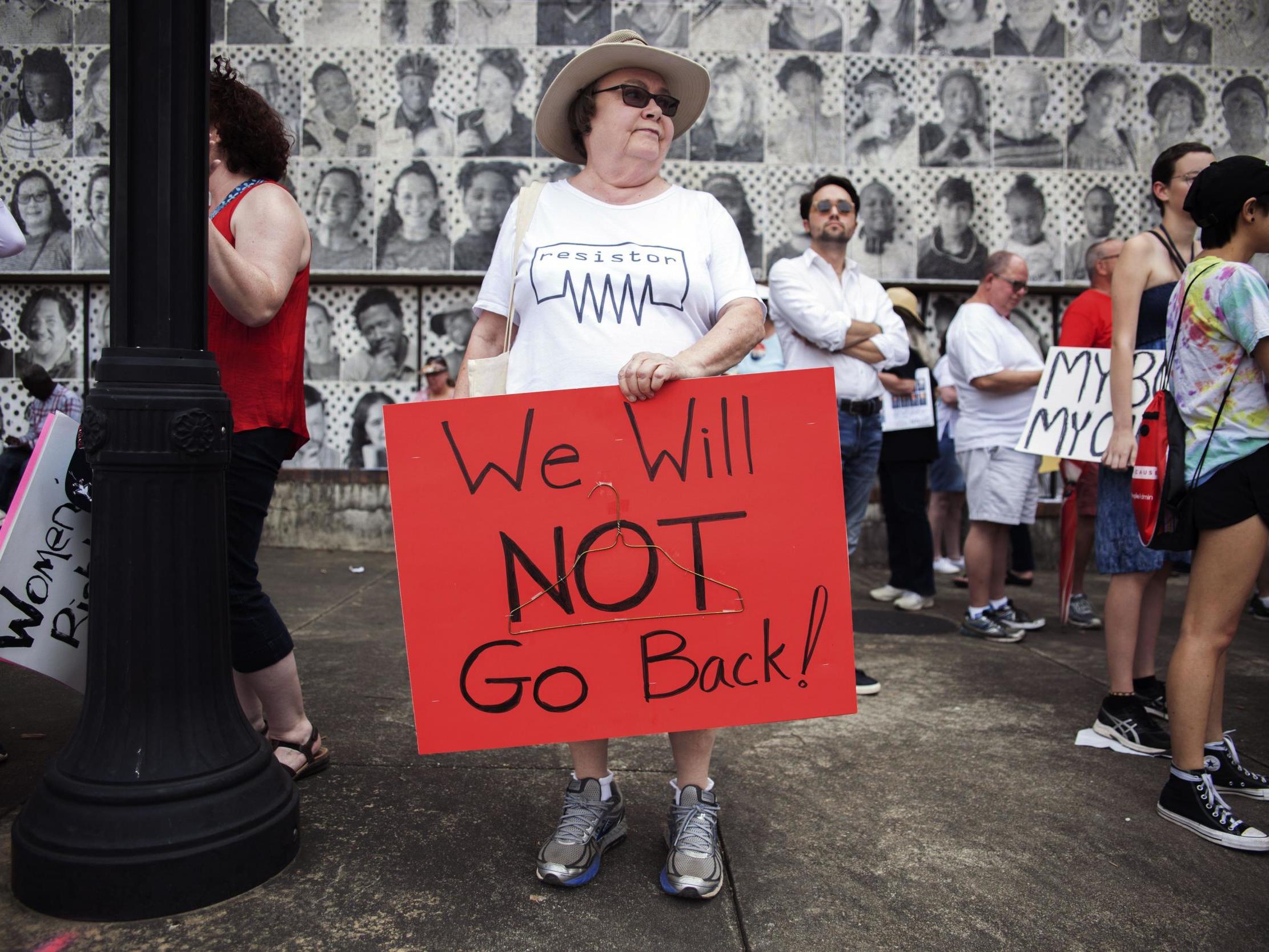
Few people bar the members of her congregation might have known who the Reverend Terry Hamilton-Poore was before the middle-aged church leader decided to take an unexpected stand against anti-abortion legislation in her state. From an armchair in her spacious, air-conditioned office at the First Presbyterian Church in Birmingham, north Alabama, she explains what happened and what the fallout looked like. She has a stern gaze and everything about her is considered and deliberate. “This is a church that wants to stand for justice in the community,” she says. “With something like this, I wouldn’t be doing my job if I didn’t speak up publicly. That’s an expectation.”
A short corridor away from Hamilton-Poore’s office is the church proper. At the front of the church, a rainbow candle stands next to a basket of badges for visitors with preferred pronouns on them (“she/her”, “he/him” and “they/them”) and outside, billowing from one of the windows, is a rainbow flag in honour of Pride Month.
These markers seem progressive in a state where, up until April 2019, state laws demanded that sex education in Alabama schools taught that homosexuality “is not a lifestyle acceptable to the general public and that homosexual conduct is a criminal offence under the laws of the state”.
Young people say they were taught that homosexuality is immoral or nonexistent in Alabama, and that condoms don’t work against HIV because “the virus is too small and gets through”. Coolly unbothered, Hamilton-Poore says that she attended the city’s Pride march recently and invited her congregation to come along too. She considers it her responsibility to advocate for all rights, including LGBT+ recognition and a woman’s right to bodily autonomy, even as other churches in the area pay protesters to stand outside reproductive health clinics and hurl insults at women arriving for abortions.
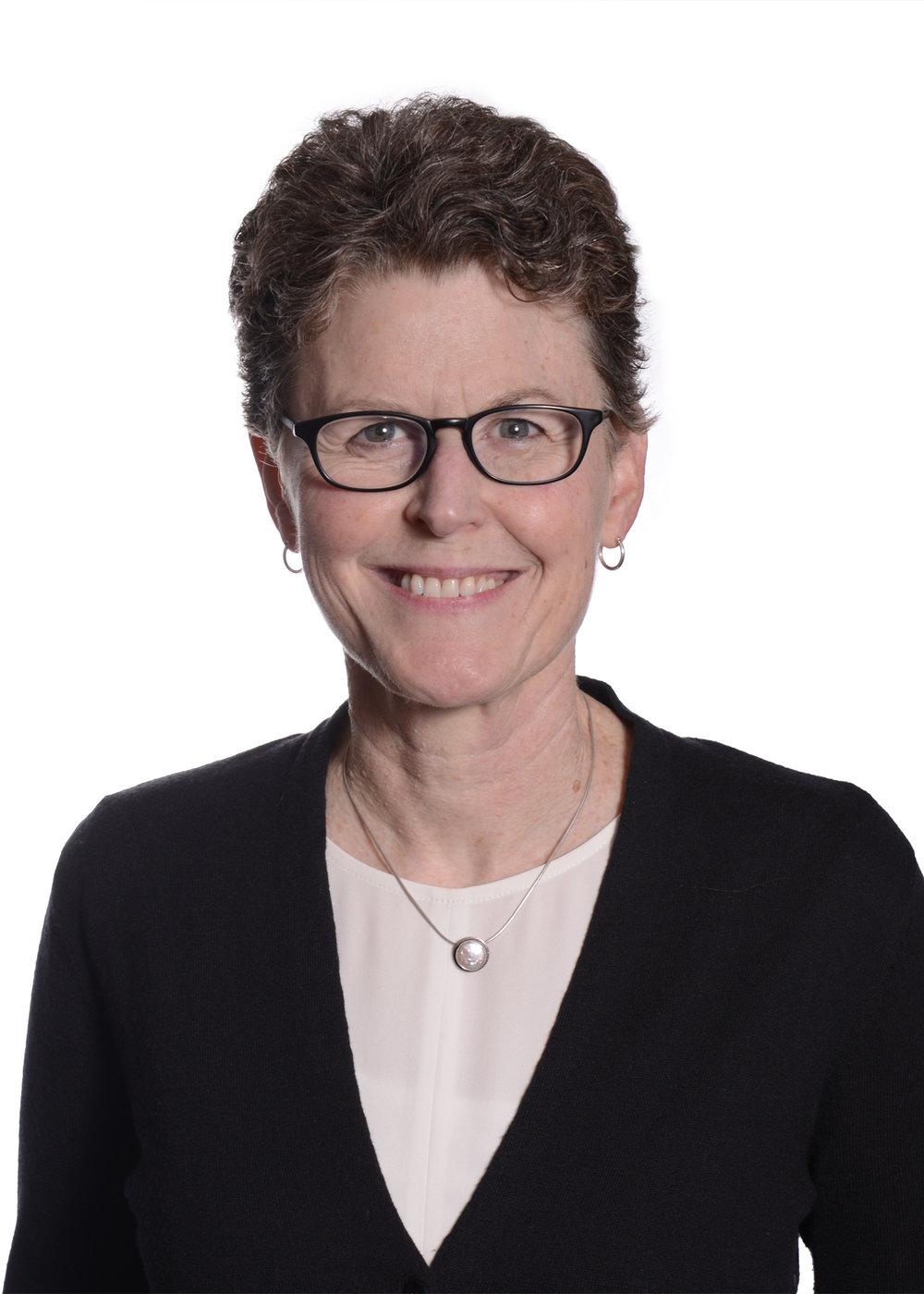
Hamilton-Poore is equally clear about why she decided to publish an op-ed on AL.com, the Alabama state website, in the wake of the abortion ban passed by Governor Kay Ivey a few months ago. The article she wrote, which went viral, was titled “No one is pro-abortion”, and speaks of how no little girl’s dream is to grow up and terminate a pregnancy. Instead, it argues, abortion may become necessary because of personal circumstances — and legislating against it isn’t the answer.
“I come to this position simply from being a woman, being a mother,” she says. “I know how complicated it is to raise children even in the best of all possible circumstances – with a supportive husband, healthcare, a good salary… it’s still complicated and difficult.
“And to force someone to do that when they don’t have those other supports – or even simply when they’re not ready – is appalling… It’s also curious to me that there seems to be this sense that women who seek an abortion are women who are incapable of making a solid ethical decision on their own – but parenting is essentially just years and years of one ethical decision after another. And then of course there is a lack of responsibility on the part of the man.
It’s also curious to me that there seems to be this sense that women who seek an abortion are women who are incapable of making a solid ethical decision on their own
“There is nothing in this [bill banning abortion] about fathers… really there is nothing in the bill which is good.”
She reminds me that the legislative body which wants to outlaw abortion “is the same legislature that has refused to extend Medicaid, that has refused to expand the things that would make it possible for more people to say yes to a child – and there seems to be a very limited imagination about the circumstances which would cause a woman to seek an abortion. I see a lot of misogyny, and a lot of judgment, this sense that someone who is seeking an abortion is a promiscuous woman who doesn’t take responsibility and hates children… There’s not a recognition of how complicated life is.”
Hamilton-Poore takes the church’s mission statement seriously, and is keen to impress there is a historical precedent for doing so. One of the pivotal moments during the American civil rights movement was when Martin Luther King Jr wrote a letter from the jail in Birmingham castigating local white clergymen for telling black people that they should “lay off their protests” and “wait for change to happen slowly”. One of the clergymen he took issue with was the pastor of the First Presbyterian Church, Terry Hamilton-Poore’s predecessor. And he listened.
“He went back to the [church board] and said, ‘We need to welcome all who God welcomes’,” says Hamilton-Poore, “and that created the beginning of really substantial change.”
The church began supporting the civil rights movement actively and pushing for immediate racial reform, and it continues to involve itself in urgent issues of social justice. That proves that people are always capable of changing their minds and working toward the right thing, Hamilton-Poore believes. “I think [a lot of] people in the anti-abortion movement [want to do the right thing as well] but they haven’t been taught to look at the issue more broadly.”
How do you change their minds, when some of those people are stationed outside abortion clinics holding graphic signs and yelling abuse at women trying to access reproductive healthcare services? “Well, that’s why I wanted to write the piece… We put it on our church Facebook page, and the responses we got – I mean of course there were some hateful responses, but there were others who said they didn’t know churches thought that way.
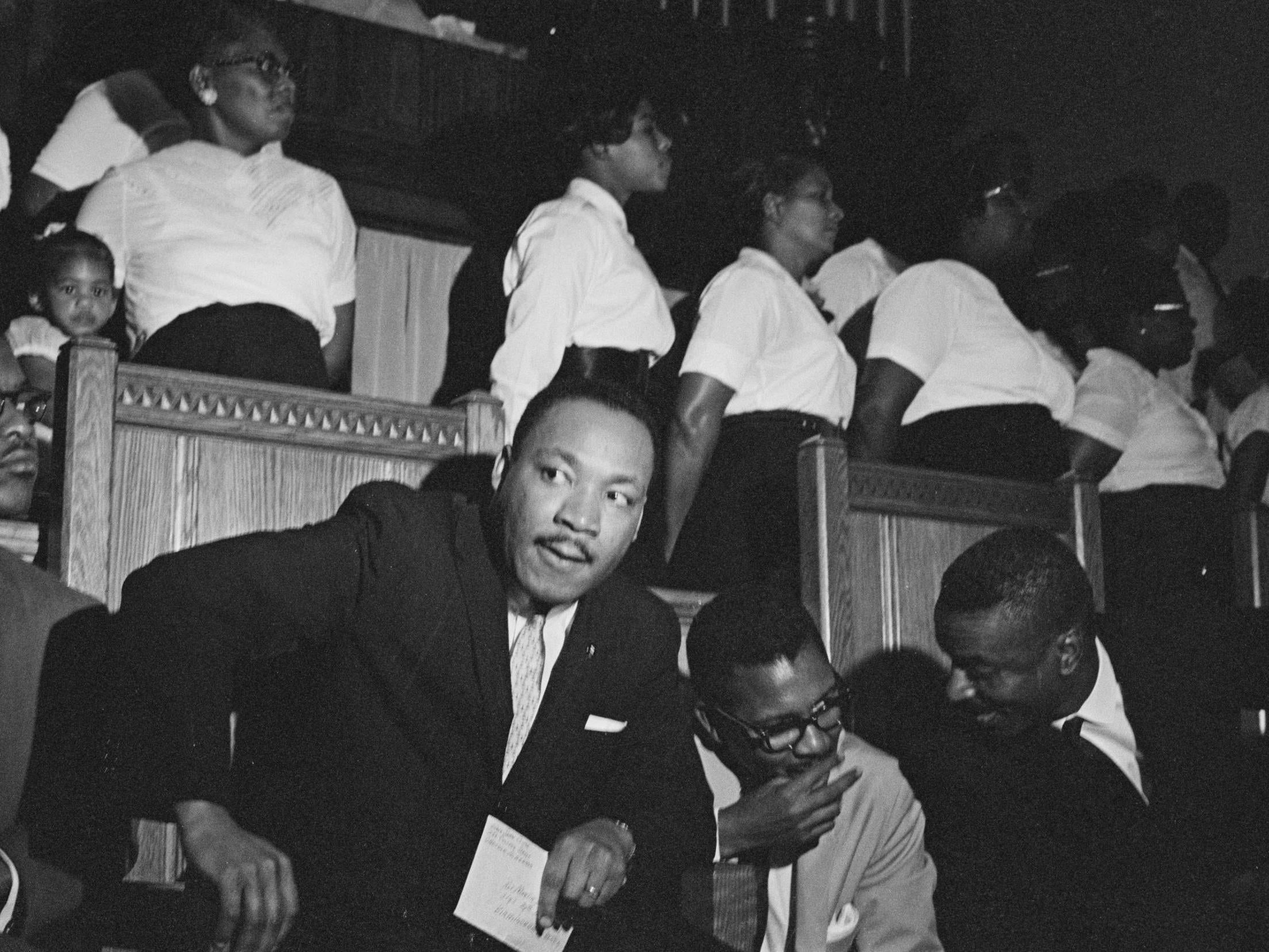
“And we’re not alone – but how do they know that? If we’re not public in what we’re saying, then how would people know that there are other ways for Christians to approach this issue?” Did she find some people reached out and wanted to start a productive discussion? “Oh yeah. So that makes the hateful responses worthwhile, if even one or two people say, wow, it was really healing to hear this.”
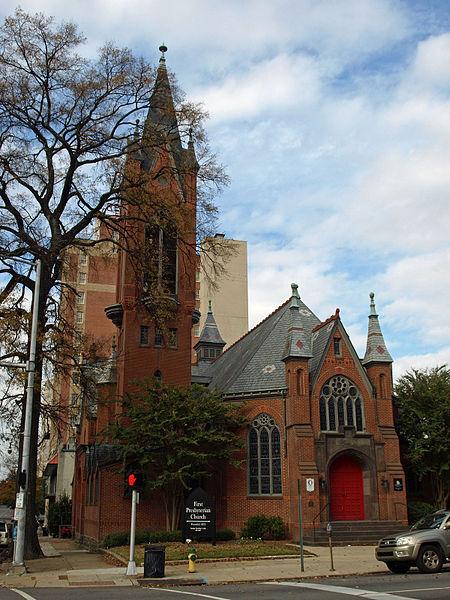
If you could say something directly to the most aggressive protesters, the ones who claim to be doing God’s work while harassing women daily, what would you say? “I would ask them to direct their support to programmes which support women and families, rather than driving people into a corner. Open some doors… certainly into things like providing affordable and reliable birth control, that’s a really good place to start. Sex education is a really good place also to put your support. Plus programmes that create cultural change around sexual assault, creating a greater sense of responsibility among boys and men and how they relate to women. There are so many things we can do as Christians to create a real systemic change as opposed to this, which… in fact creates a lot of damage.” She says she doesn’t want to judge the motivations of such vehement protesters, “but if their goal is to save babies then there are a lot better ways to do that.”
I ask Hamilton-Poore if the church is packed every Sunday. She laughs sadly and shakes her head. “No, America is going the same way as Europe. The south a little slower, but it’s still happening.”
Throughout the years, she’s been stationed at churches throughout the US. One of the biggest shocks was when she moved from a southern town, where weekly churchgoing was the done thing, to northern California, where it definitely wasn’t.
There are so many things we can do as Christians to create a real systemic change as opposed to this, which in fact creates a lot of damage
“The press used to ring me up and get quotes from me and other members of the parish for the local paper every time something happened,” she said. “Then all of a sudden, in California, no one was calling.” She laughs. “Suddenly it was like, no one cares what I think!”
Perhaps it was a shock to the system, then – or perhaps a welcome return to form – when people began sharing her pro-choice article on social media and talking about her views on the internet. It’s certainly a modern way to reach the flock, while many other American churches are determinedly stuck in the past (when their only presence online is a live-stream of the Sunday service.)
What would Hamilton-Poore say to those churches which still choose to exclude people, whether women who have had abortions, members of the LGBT+ community or both?
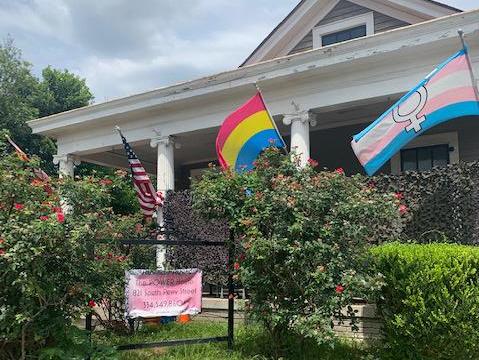
“That it’s always appropriate for churches to have a stance of humility,” she replies. “Jesus’s first followers were surprised, sometimes scandalised by the people Jesus included. Human members of Christ’s church are often trailing along kicking and screaming [but] we need to remember how surprised Jesus’s first followers were and prepare to be surprised ourselves with who we’re being led to welcome. And the other part of it is to remember that we should be surprised when we are welcomed and accepted, because we all have our brokenness. It’s not like we’re the insiders here… We’re not the doorkeepers.”
Down the road, I speak to a young woman from a rural part of the state who asks to remain anonymous and tells me she had an abortion as a teenager. I say that I just came from a meeting with a reverend, and she makes a face; then I explain that I was there specifically because Terry Hamilton-Poore is a pro-choice pastor with a good track record on preaching about women’s rights. “Wow,” she responds, visibly surprised. “That really makes my heart warm.”
In a small, rainbow pocket of an industrial city deep within the Bible Belt, Hamilton-Poore and churches like hers are clearly spreading hope. Elsewhere, Catholics and Protestant evangelicals have united to celebrate the prospect of a permanent abortion ban in the state (“I’m very proud of our legislature,” said anti-abortion clergy member Jim Pinto, who led protests outside women’s clinics, to AL.com not long after it the ban was signed in.
“Right to life is the most fundamental right. Every life needs to be protected.” He posed for a photograph outside a now-shut down reproductive healthcare clinic which was bombed in the 1980s. It’s clear that divisions in the state aren’t drawn neatly along class lines, age lines or even religious lines. What’s less clear is who will win the battle for the hearts and minds of everyday, church-going Alabamians — and who will suffer the consequences of that fight.
Join our commenting forum
Join thought-provoking conversations, follow other Independent readers and see their replies
Comments